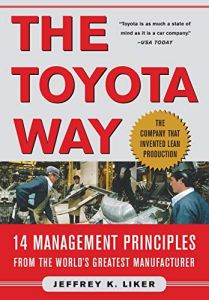Join getAbstract to access the summary!

Join getAbstract to access the summary!
Jeffrey K. Liker
The Toyota Way
14 Management Principles from the World's Greatest Manufacturer
McGraw-Hill, 2003
What's inside?
If you want your manufacturing process to flow smoothly and efficiently, do it the Toyota Way.
Recommendation
This book is like a Toyota vehicle: not necessarily fancy, but extraordinarily capable of getting you from point “A” to point “B.” Jeffrey K. Liker’s thorough insight into the continual improvement method known as “The Toyota Way” reflects his experience with the Toyota Production System (TPS) and his knowledge of its philosophies and its technical applications. Toyota’s success as the world’s most profitable automaker is no accident and now, thanks to this book, it’s no mystery, either. Liker drills down to the principles and behaviors of the Toyota Way. His straightforward book, which reflects years of studying Toyota’s philosophy, will be of service to anyone striving to improve operational efficiency.
Summary
About the Author
Jeffrey K. Liker is cofounder and director of the Japan Technology Management Program at the University of Michigan, where he is also a professor of industrial and operations engineering. He has won four Shingo Prizes for excellence, and has written extensively on Toyota in various management journals. Dr. Liker is also a principal of Optiprise, a lean enterprise/supply chain management consulting firm.






















Comment on this summary